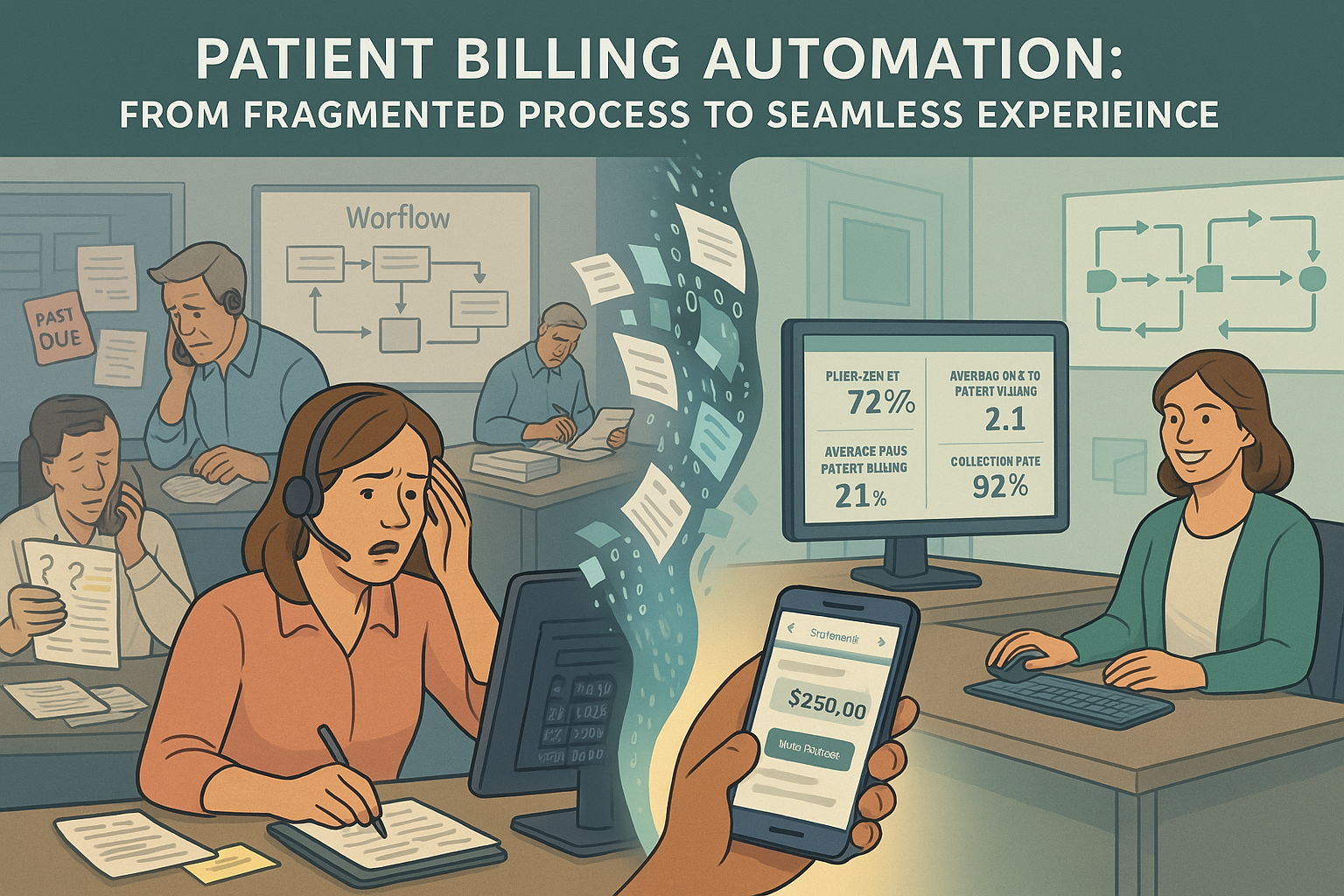The Empathetic Journey of The Medical Center’s Digital Transformation
In the ever-changing landscape of healthcare, the path to digital transformation is filled with opportunities and challenges. The experience of The Medical Center offers a narrative that resonates with compassion and empathy, especially for those at the forefront of these changes – the revenue cycle managers.
The Strategic Journey of Transformation
The Medical Center embarked on its healthcare digital transformation with a well-structured, phased approach. This journey was carefully planned and executed, always mindful of the concerns and challenges faced by its staff, particularly the revenue cycle managers.
- Pilot Phase:
The initial phase involved implementing new systems in a single department. This period was crucial for testing, allowing the center to assess the effectiveness of new technologies and refine processes. For revenue cycle managers, it was a time of adjustment and learning, approached with support and understanding from leadership. - Departmental Rollout:
Following the success of the pilot, the center expanded the transformation across various departments. This six-month phase allowed for scaling successful practices and making necessary adjustments. Leadership was particularly attentive to feedback from revenue cycle managers, ensuring their concerns were addressed. - Full-Scale Implementation:
The final phase marked the complete adoption of new systems across the medical center. While this brought significant changes in workflows, the center ensured a smooth transition through continuous support and training, focusing on those who felt overwhelmed by the changes.
Training and Support: Empowering Revenue Cycle Managers
Understanding that people are key to successful transformation, The Medical Center invested heavily in staff training and development. Tailored programs were developed to meet the specific needs of different departments. For revenue cycle managers, these programs were not just about learning new systems but understanding their evolving roles in a digitally enhanced environment. The center approached this with empathy, acknowledging the challenges and fears associated with adapting to new ways of working.
Addressing Challenges with Understanding
The transformation journey was not without hurdles. Integrating new technologies with existing systems and overcoming resistance to change were significant challenges. The Medical Center addressed these with a combination of strategic planning and empathetic leadership. Revenue cycle managers, who bore the brunt of these challenges, received transparent communication, demonstrating the tangible benefits of the new systems, and reassurance that their roles were evolving, not diminishing.
Monitoring and Adjusting with Compassion for Healthcare Digital Transformation
To ensure the transformation stayed on track, The Medical Center established robust monitoring systems. Key performance indicators (KPIs) were tracked, and staff feedback, especially from revenue cycle managers, was used to make real-time adjustments. This continuous improvement approach was key in refining the transformation process.
The Transformative Impact: A New Era of Efficiency and Empathy
The digital transformation at The Medical Center led to significant improvements in efficiency and accuracy. Automation took over repetitive tasks like eligibility verification and claims submission, reducing errors and freeing revenue cycle managers to focus on more complex cases. This shift not only enhanced operational efficiency but also recovered revenue by eliminating preventable claim denials.
Moreover, the transformation had a profound impact on staff morale and retention. By automating mundane tasks, the center empowered revenue cycle managers to focus on high-value activities, leading to increased job satisfaction and reduced turnover. The leadership recognized that the well-being and professional growth of the staff were as critical as the technological advancements themselves.
Embracing Data-Driven Decision Making in Healthcare Digital Transformation
A significant aspect of the transformation was adopting real-time data analytics. This shift enabled revenue cycle managers to move from a reactive approach to a more proactive, strategic role. Armed with data, they could identify trends, predict potential denials, and optimize revenue collection strategies more effectively. This shift marked a move from traditional to strategic, data-driven operational models.
Looking Forward: Continuous Improvement and Innovation
The digital transformation journey at The Medical Center is ongoing. The center remains committed to continuous improvement, adapting to evolving healthcare challenges, and leveraging technology for further advancements in patient care and operational efficiency.
This journey highlights the importance of balancing technological advancements with the human element. For revenue cycle managers and other healthcare professionals, the transformation opened doors to new opportunities for growth and development. The Medical Center’s story serves as an inspiring example for other healthcare institutions, demonstrating that with the right approach, embracing digitalization can lead to not just improved efficiencies but also a more fulfilling career path in the rapidly evolving world of healthcare.
Conclusion: Embracing Change with Compassion and Strategy
The Medical Center’s healthcare digital transformation journey underscores the importance of empathy, strategic planning, and stakeholder engagement in navigating the complex yet rewarding path of healthcare digital transformation. It is a testament to how technology can enhance the healthcare environment, not by replacing human skills, but by augmenting and complementing the invaluable human touch in healthcare.










